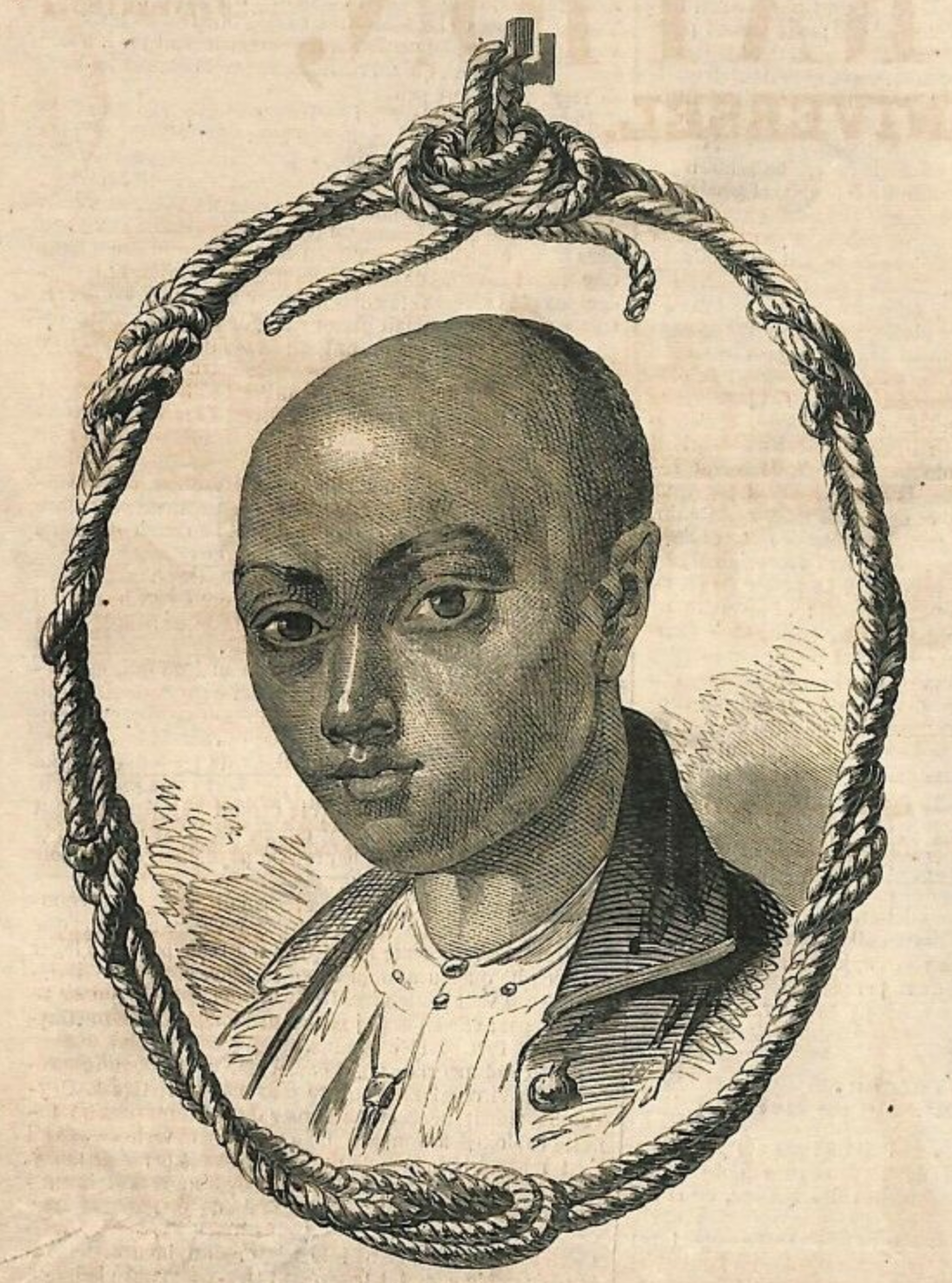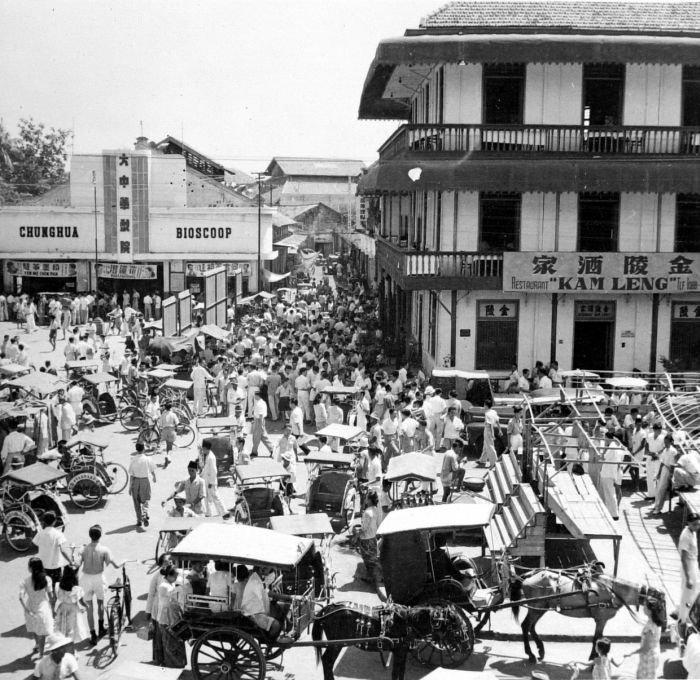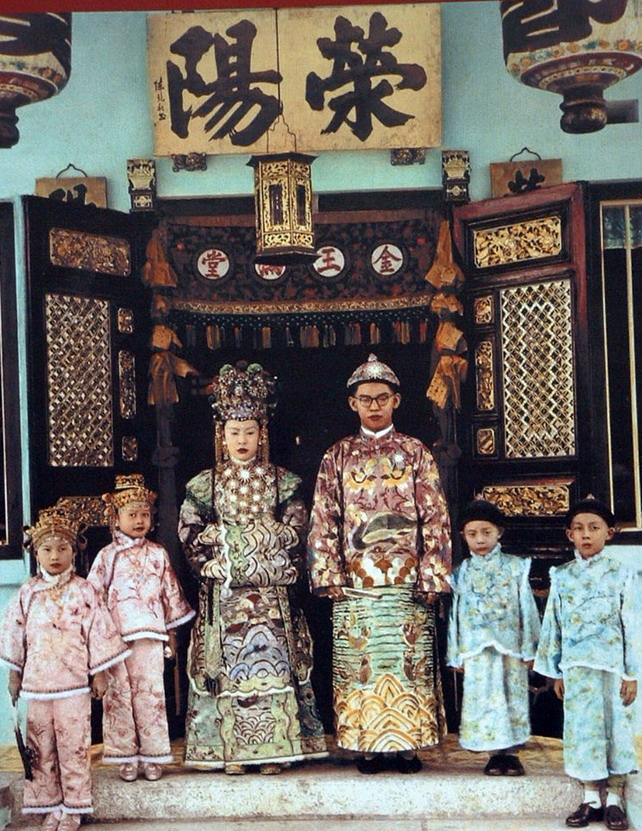|
Han Tiauw Tjong
Han Tiauw Tjong Sia (1894–1940), known as Dr. Ir. Han Tiauw Tjong, was a prominent colonial Indonesian politician, engineer, community leader and a member of the influential Han family of Lasem. He sat in the Volksraad (the colonial legislature) of the Dutch East Indies for two terms (1924 – 1929, 1938 – 1939), and was a founding member of the centre-right political party Chung Hwa Hui. Han also served as a Trustee of the ''Technische Hoogeschool te Bandoeng'' (now an Indonesian national research university, ITB: the Institut Teknologi Bandung) from 1924 until 1940. Biography Family background Born in Probolinggo, East Java on February 1, 1894, Han came from the Surabaya branch of the Han family of Lasem, one of the oldest ''Peranakan'' dynasties of the 'Cabang Atas' gentry of Java (''baba bangsawan'') with a long tradition of public service. Han was the son of Han Biauw Sing, '' Luitenant der Chinezen'' of Kutaraja in Aceh (in office from May 21, 1913, until September 12, ... [...More Info...] [...Related Items...] OR: [Wikipedia] [Google] [Baidu] |
Han Family Of Lasem
The Han family of Lasem, also called the Han family of East Java or Surabaya, was an influential family of the 'Cabang Atas' or the Chinese gentry of the Dutch East Indies (today known as Indonesia). They came to power in the Indies through their alliance with the Dutch East India Company in the 18th century. Originally from Lasem in Central Java, they figured prominently in the consolidation of Dutch rule in East Java and maintained a long tradition of government service as ''Kapitan Cina'' and ''priyayi'' in the Dutch colonial bureaucracy. Founding and history of the family The family is descended from Han Siong Kong (1673-1743), who migrated to Lasem from Zhangzhou, Fujian, Qing Empire; and from the 12th-century Chinese mandarin Han Hong. Their first attested ancestor, the 7th-century military leader Han Zhaode, was a general in the army of the warlord Chen Yuanguang (657–711) who pacified Fujian for the Tang dynasty. Two of Han Siong Kong's sons, by a daughter of the reg ... [...More Info...] [...Related Items...] OR: [Wikipedia] [Google] [Baidu] |
Sia (title)
Sia () was a hereditary title of Chinese origin, used mostly in colonial Indonesia. It was borne by the descendants of Chinese officers, who were high-ranking, Chinese civil bureaucrats in the Dutch colonial government, bearing the ranks of ''Majoor, Kapitein'' or ''Luitenant der Chinezen'' (see: ''Kapitan Cina''). History As with other Chinese honorifics, the title 'Sia' came at the end of the title holder's name: for example, as in Oey Tamba ''Sia'' (1827 - 1856). The title was used not with its holder's surname, but with his given name, so ''Tamba Sia'' instead of ''Oey Sia''. In everyday speech, use of the title was often combined with other honorifics, such as ''Ako Sia'' ('elder brother Sia') or '' Baba Sia'' ('sir Sia'). Originally, the honorific was used in Imperial China to address certain senior mandarins, the relatives of a mandarin or descendants of the House of Koxinga, formerly the ruling dynasty of the Kingdom of Tungning. In colonial Indonesia, the honorific ... [...More Info...] [...Related Items...] OR: [Wikipedia] [Google] [Baidu] |
Glodok
Glodok () is an urban village of Taman Sari, West Jakarta, Indonesia. The area is also known as Pecinan or Chinatown since the Dutch colonial era, and is considered the biggest in Indonesia. Majority of the traders and residents of Glodok are Chinese descent. The area dates back to colonial times when in November 1740, Dutch East Indies Company designated Glodok as a residential area for ethnic Chinese. Administratively, the area is a ''kelurahan'' under the Taman Sari district, West Jakarta. Glodok is one of biggest trading centers for electronic goods in Jakarta. History Toponymy The word Glodok came from the Sundanese word " Golodog" (Sundanese script: ᮌᮧᮜᮧᮓᮧᮌ᮪), meaning entrance to a house, as Sunda Kalapa (Jakarta) is the gateway to the ancient Sundanese Kingdom. It was also thought that the name came from the "grojok grojok" sound that water makes coming out of a waterspout in the yard of the Cityhall (Stadhuis), now the Jakarta Museum. A waterspout was b ... [...More Info...] [...Related Items...] OR: [Wikipedia] [Google] [Baidu] |
Working Paper
A working paper or work paper may be: *A working paper or technical paper. Often, authors will release working papers to share ideas about a topic or to elicit feedback before submitting to a peer reviewed conference or academic journal. Working papers are often the basis for related works, and may in themselves be cited by peer-review papers. They may be considered as grey literature. * Sometimes the term working paper is used synonymously as technical report. Working papers are typically hosted on websites, belonging either to the author or the author's affiliated institution. The United Nations uses the term "working paper" in approximately this sense for the draft of a resolution. *Documents required for a minor to get a job in certain states within the United States. Such papers usually require the employer, parent/guardian, school, and a physician to agree to the terms of work laid out by the employer. * Audit working papers: Documents required on an audit of a company ... [...More Info...] [...Related Items...] OR: [Wikipedia] [Google] [Baidu] |
Chinese Indonesians
Chinese Indonesians ( id, Orang Tionghoa Indonesia) and colloquially Chindo or just Tionghoa are Indonesians whose ancestors arrived from China at some stage in the last eight centuries. Chinese people and their Indonesian descendants have lived in the Indonesian archipelago since at least the 13th century. Many came initially as sojourners (temporary residents), intending to return home in their old age. Some, however, stayed in the region as economic migrants. Their population grew rapidly during the colonial period when workers were contracted from their home provinces in Southern China. Discrimination against Chinese Indonesians has occurred since the start of Dutch colonialism in the region, although government policies implemented since 1998 have attempted to redress this. Resentment of ethnic Chinese economic aptitude grew in the 1950s as Native Indonesian merchants felt they could not remain competitive. In some cases, government action propagated the stereotype that e ... [...More Info...] [...Related Items...] OR: [Wikipedia] [Google] [Baidu] |
Jus Sanguinis
( , , ; 'right of blood') is a principle of nationality law by which citizenship is determined or acquired by the nationality or ethnicity of one or both parents. Children at birth may be citizens of a particular state if either or both of their parents have citizenship of that state. It may also apply to national identities of ethnic, cultural, or other origins. Citizenship can also apply to children whose parents belong to a diaspora and were not themselves citizens of the state conferring citizenship. This principle contrasts with '' jus soli'' ('right of soil'), which is solely based on the place of birth. Today, almost all states apply some combination of ''jus soli'' and ''jus sanguinis'' in their nationality laws to varying degrees. Historically, the most common application of ''jus sanguinis'' is a right of a child to their father's nationality. Today, the vast majority of countries extend this right on an equal basis to the mother. Some apply this right irrespecti ... [...More Info...] [...Related Items...] OR: [Wikipedia] [Google] [Baidu] |
Chinese Nationalism
Chinese nationalism () is a form of nationalism in the People's Republic of China (Mainland China) and the Republic of China on Taiwan which asserts that the Chinese people are a nation and promotes the cultural and national unity of all Chinese people. It is often equated with Han nationalism, although these two concepts are different. According to Sun Yat-sen's philosophy in the Three Principles of the People, Chinese nationalism should be a form of civic nationalism constructed on top of a united value, however this has not been fully recognized or applied in practice by successors. Modern Chinese nationalism emerged in the late Qing dynasty (1636–1912) in response to the humiliating defeat in the First Sino-Japanese War and the invasion and pillaging of Beijing by the Eight-Nation Alliance. In both cases, the aftermath forced China to pay financial reparations and grant special privileges to foreigners. The nationwide image of China as a superior Celestial Empir ... [...More Info...] [...Related Items...] OR: [Wikipedia] [Google] [Baidu] |
Peranakans
The Peranakans () are an ethnic group defined by their genealogical descent from the first waves of Southern Chinese settlers to maritime Southeast Asia, known as Nanyang (), namely the British Colonial ruled ports in the Malay Peninsula, the Indonesian Archipelago as well as Singapore. Peranakan culture, especially in the dominant Peranakan centres of Malacca, Singapore, Penang and Medan, is characterized by its unique hybridization of ancient Chinese culture with the local cultures of the Nusantara region, the result of a centuries-long history of transculturation and interracial marriage. Immigrants from the southern provinces of China arrived in significant numbers in the region between the 14th and 17th centuries, taking abode in the Malay Peninsula (where their descendants in Malacca, Singapore and Penang are referred to as Baba–Nyonya); the Indonesian Archipelago (where their descendants are referred to as Kiau–Seng); and Southern Thailand, primarily in Phuket, Tr ... [...More Info...] [...Related Items...] OR: [Wikipedia] [Google] [Baidu] |
Chung Hwa Hui Nederland
Chung may refer to: Surnames * Chung (surname) * Jeong (surname), Korean surname * Zhong (surname), or Chung, Chinese surname * Cheung, or Chung, Cantonese surname Geography * Chung, Iran, a village in Kohgiluyeh and Boyer-Ahmad Province, Iran * Chung, India, a village in Patti Tehsil, Amritsar, Punjab, India Language * Chung language of Cameroon. See also * Chan (other) * Chong (other) * Zhong (other) Zhong can refer to * Zhong (surname), pinyin romanization of Chinese surnames including 钟, 种, 仲, etc. * Zhong County, a county of Chongqing, China * Zhongjian River, a river in Hubei, China * Bianzhong, a Chinese musical instrument similar t ... {{disambig, geo ... [...More Info...] [...Related Items...] OR: [Wikipedia] [Google] [Baidu] |
Delft University
Delft University of Technology ( nl, Technische Universiteit Delft), also known as TU Delft, is the oldest and largest Dutch public technical university, located in Delft, Netherlands. As of 2022 it is ranked by QS World University Rankings among the top 10 engineering and technology universities in the world. In the fields of architecture and civil engineering, it was ranked 2nd in the world, after MIT (Massachusetts Institute of Technology). With eight faculties and numerous research institutes, it has more than 26,000 students (undergraduate and postgraduate) and 6,000 employees (teaching, research, support and management staff). The university was established on 8 January 1842 by William II of the Netherlands as a Royal Academy, with the primary purpose of training civil servants for work in the Dutch East Indies. The school expanded its research and education curriculum over time, becoming a polytechnic school in 1864 and an institute of technology (making it a full-fledged ... [...More Info...] [...Related Items...] OR: [Wikipedia] [Google] [Baidu] |
Netherlands
) , anthem = ( en, "William of Nassau") , image_map = , map_caption = , subdivision_type = Sovereign state , subdivision_name = Kingdom of the Netherlands , established_title = Before independence , established_date = Spanish Netherlands , established_title2 = Act of Abjuration , established_date2 = 26 July 1581 , established_title3 = Peace of Münster , established_date3 = 30 January 1648 , established_title4 = Kingdom established , established_date4 = 16 March 1815 , established_title5 = Liberation Day (Netherlands), Liberation Day , established_date5 = 5 May 1945 , established_title6 = Charter for the Kingdom of the Netherlands, Kingdom Charter , established_date6 = 15 December 1954 , established_title7 = Dissolution of the Netherlands Antilles, Caribbean reorganisation , established_date7 = 10 October 2010 , official_languages = Dutch language, Dutch , languages_type = Regional languages , languages_sub = yes , languages = , languages2_type = Reco ... [...More Info...] [...Related Items...] OR: [Wikipedia] [Google] [Baidu] |
Semarang
Semarang ( jv, ꦏꦸꦛꦯꦼꦩꦫꦁ , Pegon: سماراڠ) is the capital and largest city of Central Java province in Indonesia. It was a major port during the Dutch colonial era, and is still an important regional center and port today. The city has been named as the cleanest tourist destination in Southeast Asia by the ASEAN Clean Tourist City Standard (ACTCS) for 2020–2022. It has an area of and is located at . The population of the city was 1,555,984 at the 2010 censusBiro Pusat Statistik, Jakarta, 2011. and 1,653,524 at the 2020 census,Badan Pusat Statistik, Jakarta, 2021. making it Indonesia's ninth most populous city after Jakarta, Surabaya, Bekasi, Bandung, Medan, Depok, Tangerang and Palembang. The built-up urban area had 3,183,516 inhabitants at the 2010 census spread over two cities and 26 districts. The Semarang metropolitan area (a.k.a. ''Kedungsepur'') has a population of over 6 million in 2020 (''see Greater Semarang section''). The population of the cit ... [...More Info...] [...Related Items...] OR: [Wikipedia] [Google] [Baidu] |



_en_Tek_Hwa_Seng_bij_Poeloe_Samboe_TMnr_10010680.jpg)
.jpg)


